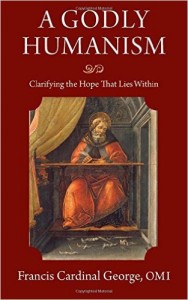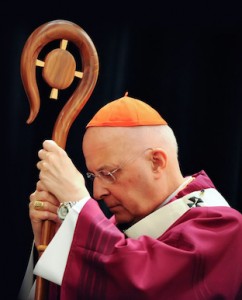I hear from lots of people these days that they’re disoriented by what’s going on in the Church and in the world. We’ve entered one of those periods in which everything, public and private, appears to have become unsettled. Politics, economics, morals, spirituality, friendships, alliances – all these and more manifest a frightening new brittleness. A secular magazine I just came across puts the big question in high philosophical terms, which also seem to apply to everyday things: “existence is becoming increasingly unthinkable.”
What is to be done? Besides the tried and true prayer, fasting, and almsgiving, we need guidance about the permanent things: who we are, why we are alive? Hard subjects, to be sure, but despite appearances, a lot of people would like to tackle them, because not to do so means to be something less than human.
Students start school in the next few weeks. Parents (and all of us) who realize how much depends on the right sort of education these days may find ourselves more than a little on edge about what goes on even in our best schools and universities. As a tonic and guide, I recommend the late Cardinal Francis George’s book A Godly Humanism: Clarifying the Hope that Lies Within, which just came out and is a kind of last will and testament regarding his lifelong – and profound – interest in the life of the mind.
(Full disclosure: I had a hand in the essay on the Catholic intellectual tradition that opens this volume, but the final product, page by page, is ultimately shaped, stamped, and amplified by the great man himself – always pure Cardinal George.)
The title A Godly Humanism may seem paradoxical. But it was one of the projects of St. John Paul II to revive an authentic Christian Humanism, i.e., a view of the human person and that person’s place in the world much deeper and more spacious than the superficial and narrow view that passes for humanism today. The cardinal confesses in the very first paragraph that he intended to call the book “Wisdom and Discipleship,” but – perhaps at the publisher’s request – it got this more general title.
A good thing, too, because what he has to say is important to Catholics, to be sure, but to the wider world at this moment. Clearly, the cardinal wanted to bring together things that many people in our time wrongly think are at odds: reason and faith, intelligence and holiness, ultimately God and man. He shows how those differing pairs relate, partly by describing the way they have functioned in his own rich and productive life as priest and bishop, but also in how they fit into what, by any fair description, is among the richest intellectual and cultural traditions in the world: Catholicism.
And much is at stake:
Recent popes have emphasized the responsibility to cultivate the wisdom traditions of philosophy and theology that are fundamental to Catholic intellectual life – for the sake of both the Church and the global cultures in need of moral and religious direction. The question of truth in matters moral and religious has to be raised within the context of the quest for wisdom, goodness, holiness, both within the full ecclesial communion and in conjunction with all “people of goodwill.” Truth cannot be consigned to a utilitarian toolbox, as it has been from the European Enlightenment onward, as if it were an instrument of social or civil dominative power. Both nature and history are ordered to ends inscribed in their very existence by their Creator and Redeemer.
At a more mundane level, where those big ideas actually have to guide each of our lives, when’s the last time you heard someone, anyone, speak about the need for wisdom? Not cleverness, or data, or information. Not how all values are merely “socially constructed.” Wisdom. Yes, it has an antique sound and it says a great deal about us that many wonder whether such a thing even exists. But can we do without understanding the place for the various realms of human knowledge and action, and the differing weights that should be given them, especially in a time when everything seems up in the air?
The absolute crux is to know God and ourselves. The cardinal points to a key passage in Scripture (in all three Synoptic Gospels) that introduces the “Godly” dimension of real humanism. When Jesus asks the disciples, who do they say He is, Peter famously pipes up, “the Christ, the Son of the Living God”:
Jesus responds, you’re right, but you didn’t learn this from your own experience. You know because the Father has revealed it to you, and so now I’ll tell you, Simon, who you are. You are Peter.
Many of us are lost precisely because failure to know the Living God means we don’t – and can’t – know ourselves properly either.
This is a different sort of learning than what our poor young people will be subjected to as they return to school. And not only is it important to recognize the need for wisdom. We need, as in the cardinal’s original book title, disciples of wisdom.
Even in the vaudeville show of our current presidential campaigns, there’s much talk of the big difference between speaking fine words and acting effectively. One way forward, given our predicament, would be to form a new generation that cannot only mouth the words – though it would be a great achievement if we got that far. They also need to learn how to play the music.
If you want to know how to get from here to there, there are few guides more reliable than our late friend, Francis Cardinal George.

















